You didn’t sleep well last night, and a long, hard day awaits you. What can you do to make it through?
If you are a coffee lover, you start your morning with a double shot of espresso coffee! Whether made at home or purchased at your favorite coffee shop, people rely on espresso’s reputation as a legendary eye-opener with high caffeine content.
But is that really true? Does espresso wake you up any better than other caffeinated beverages? And is drinking espresso to wake you up even healthy? To answer the pressing questions, let’s take a closer look at espresso and its caffeine content.
Does a shot of espresso give you energy?
If you’ve never had it, you may ask: “Will espresso wake me up, or is that just a myth?” It’s true — espresso gives you an energy boost due to its high caffeine content.
Ounce for ounce, espresso contains more caffeine than almost any other coffee drink, apart from some incredibly concentrated brews like ristretto. Caffeine is the stimulant responsible for the energy surge you feel after drinking espresso.
Caffeine consumption affects your nervous system in complex ways. Caffeine molecules closely resemble adenosine — a chemical responsible for making you feel sleepy. This allows caffeine molecules to attach to the adenosine receptors in your brain.
With caffeine taking its place, the sleep molecules can’t get into your brain and body to do their job. As a result, you will not feel tired.
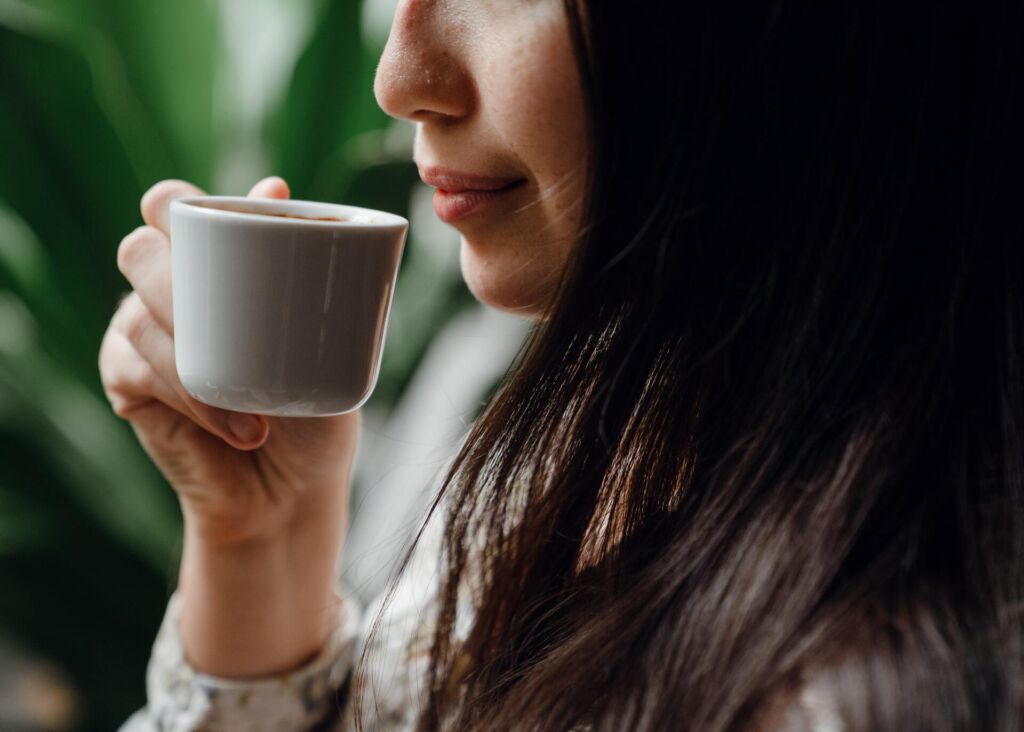
In addition, caffeinated drinks stimulate dopamine, adrenaline, and serotonin levels — perhaps you recognize them from science class. They form a potent chemical combo that makes us feel good, gets our hearts pumping faster, and increases our focus.
Thanks to all this chemical activity, an espresso shot can boost memory, increase alertness, improve concentration, and help regulate the metabolism.
However, this is not a “natural” state for the brain. It needs adenosine to rest, so over time, your brain will grow more receptors to catch the sleep chemicals.
This is why you eventually end up having to consume much more caffeine to get the same energy boost. Consequently, heavy espresso drinkers might abandon espresso for strong caffeine pills or specialized energy drinks — a shot of espresso doesn’t work for them anymore.
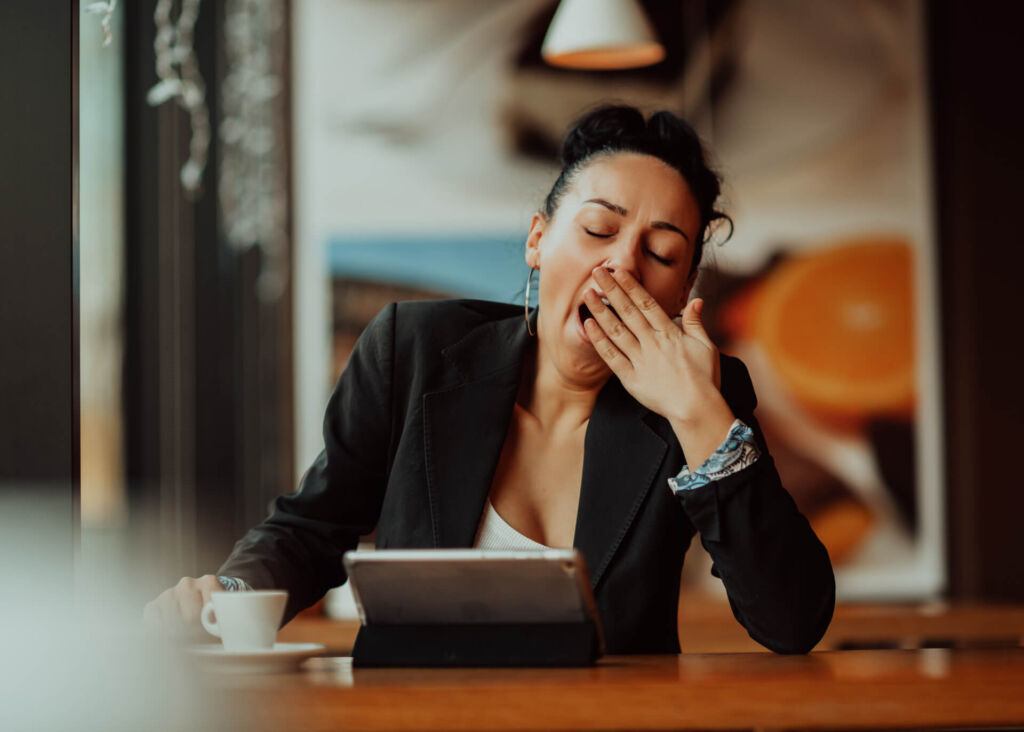
How many espresso shots will wake you up?
Does a shot of espresso wake you up? Or will you have to double or even triple down on it?
On average, a double shot is enough to keep espresso drinkers awake. But why does a double espresso wake you up?
It all comes down to the amount of caffeine you ingest. Most people require 100mg to 200mg of caffeine to boost their energy levels.
There are roughly 64mg of caffeine in a single serving of espresso. The caffeine can vary slightly depending on the variety of coffee beans, how they are roasted, and how finely ground espresso beans the barista uses.
Some arabica coffee types have less caffeine than usual espresso beans and can still make for a tasty shot. But it’s safe to say one shot contains 60-70mg of caffeine.
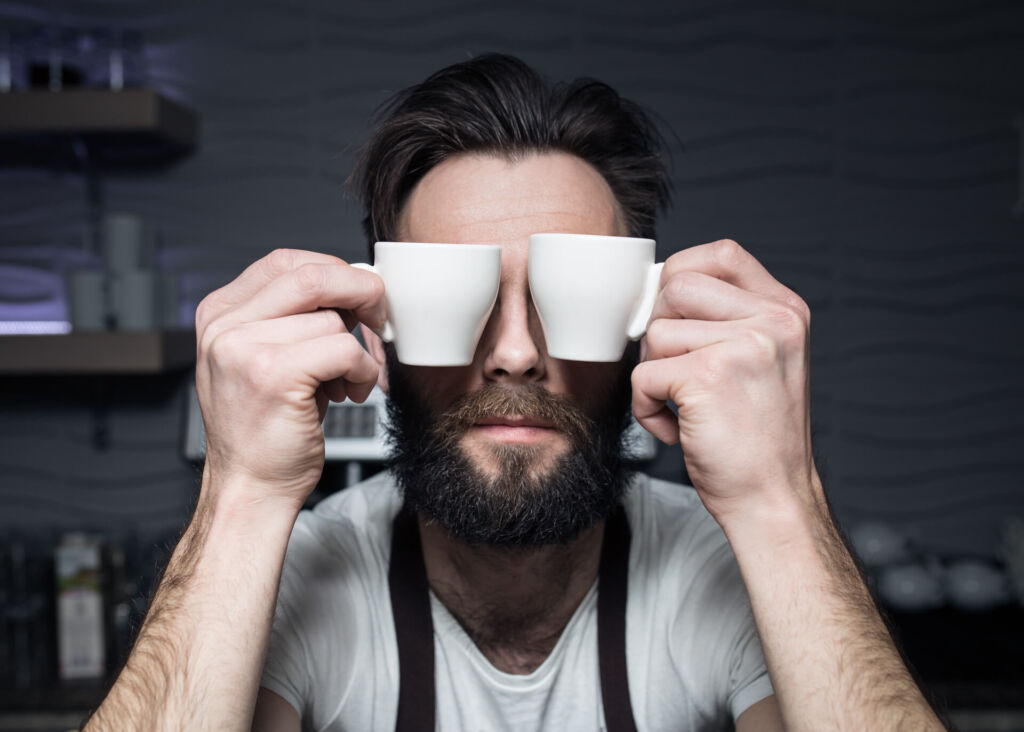
Basic math then tells us that two espresso shots will have 120-140mg of caffeine. That’s just enough to fall within the caffeine range that wakes most people up. Therefore, two espresso shots are ideal for opening your eyes.
But how much caffeine you need to wake up is not a rule set in stone. Caffeine tolerance can vary wildly from person to person, based on their natural metabolism and how often they consume caffeine.
Hardcore espresso coffee drinkers may have developed significant tolerance for caffeine. If you guzzle multiple cups of coffee daily, you may need a triple serving or even a caffeine pill to boost your energy.
If you drink coffee rarely — or are doing so for the first time — it might be wise to start with a single shot. You can always order another if the first one didn’t do the trick. Having too much caffeine might make you feel uncomfortably jittery throughout the day.
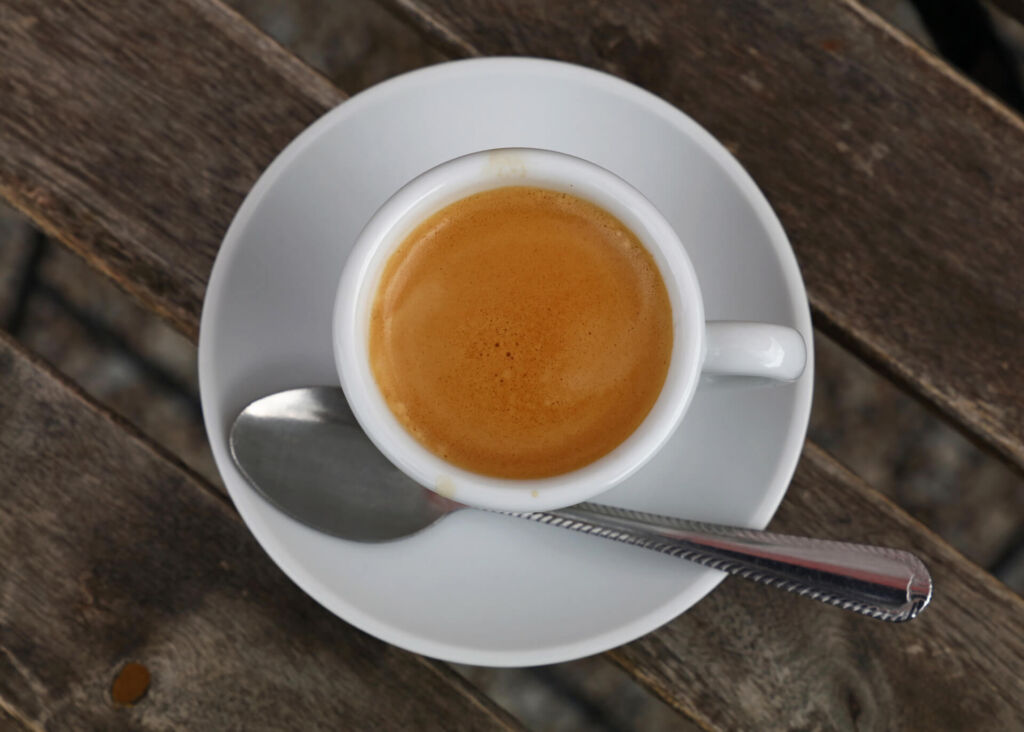
How long does it take for espresso to kick in?
Waiting is the hardest part — especially when you yearn for that espresso energy boost. Dragging yourself to work or school in the morning, you may wonder how long it takes for espresso coffee to kick in.
The effects of caffeine will reach their highest level within 30 to 60 minutes of consuming caffeinated drinks. This doesn’t go just for espresso-based beverages but also for most other caffeinated drinks, whether drip-brewed coffee or an energy drink.
So, if you just knocked back a couple of espresso shots but still feel tired, don’t order another one immediately. Give the coffee some time to do its job.
Several factors can make espresso coffee kick in sooner or later than usual. These important things include your metabolism, how much you’ve eaten, and whether your espresso has additives.
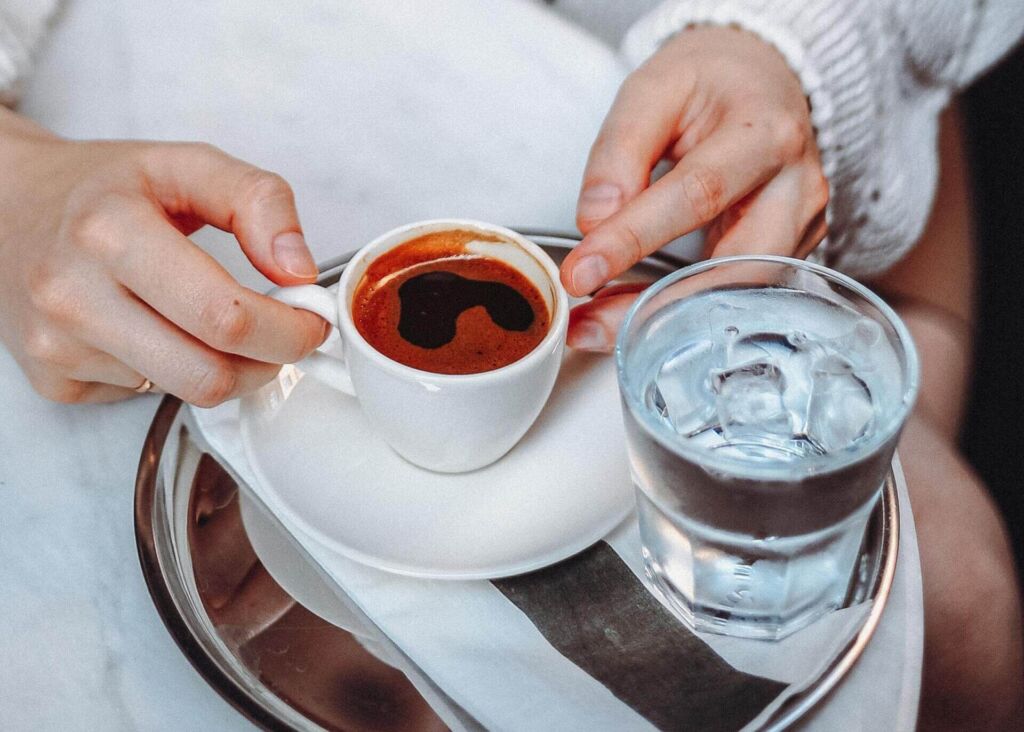
Each person is unique, and others will naturally metabolize caffeine faster. There’s not much you can do to change that — people are built differently.
Having other food in your stomach can delay the onset of caffeine’s effects. If you’ve just had a big breakfast, it will take longer for espresso to work. Drinking coffee on an empty stomach may work faster, but it can make you feel sick or jittery.
Finally, many people start their mornings with espresso-based drinks, such as lattes or cappuccinos. You might think the added milk would lower the amount of caffeine, but it does not affect it.
However, you’ll drink a latte slower than an espresso shot, delaying caffeine effects. That is unless you like espresso drinks loaded with sugar or syrups.
Sugar is a mild stimulant that takes effect in as little as 15 minutes. So, chugging a sugary espresso drink very fast might produce a quick energy boost.
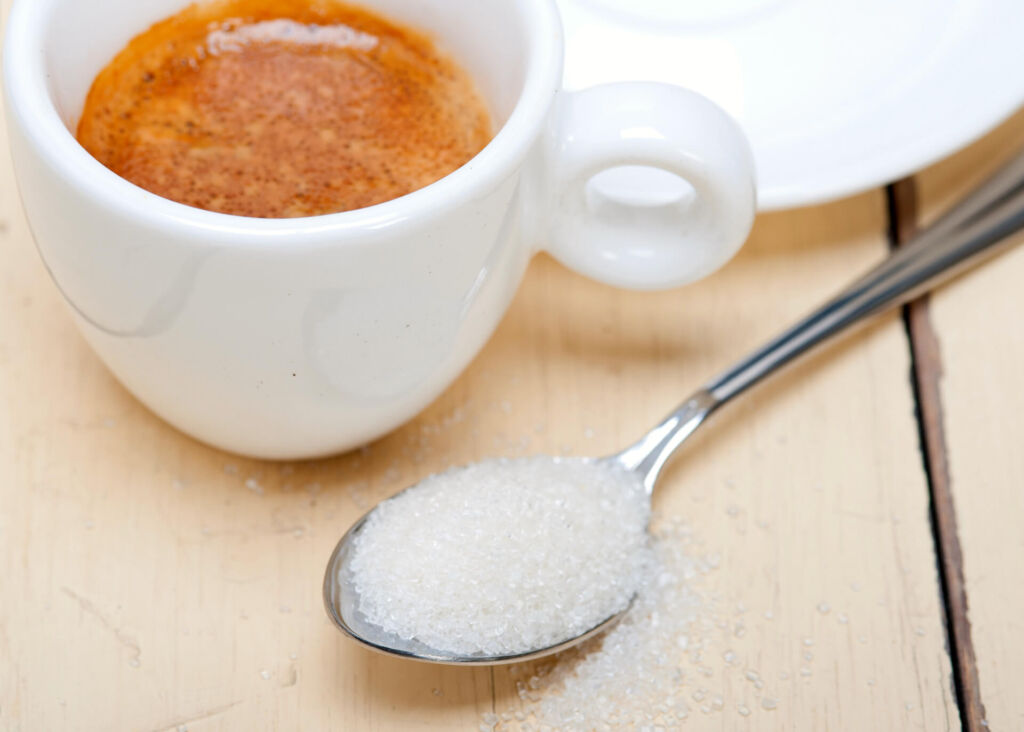
How long will an espresso shot keep you awake?
Have you started your day with espresso coffee only to become sleepy again after a few hours? That is perfectly normal.
Espresso’s power begins to wear off after one hour and will be mostly gone within five hours. This is due to how your body metabolizes caffeine.
Research shows that caffeine’s half-life is around five hours. That means your body takes five hours to eliminate half of all the caffeine you have consumed.
A double espresso shot has approximately 140mg of caffeine. After five hours, your system will have only about 70mg of caffeine left — well below the 100-200mg of caffeine people need to increase their energy levels.
And just like that, it becomes harder for you to stay alert, and you will want to fall asleep. For them to keep you awake all day, you would have to drink several espressos every two or three hours to get more caffeine.
But as delicious as espresso is, that is not a great idea. Consuming too much caffeine can lead to problems that may ironically cause you even more fatigue. Getting enough sleep at night is better than relying on espresso to keep you awake throughout the day.
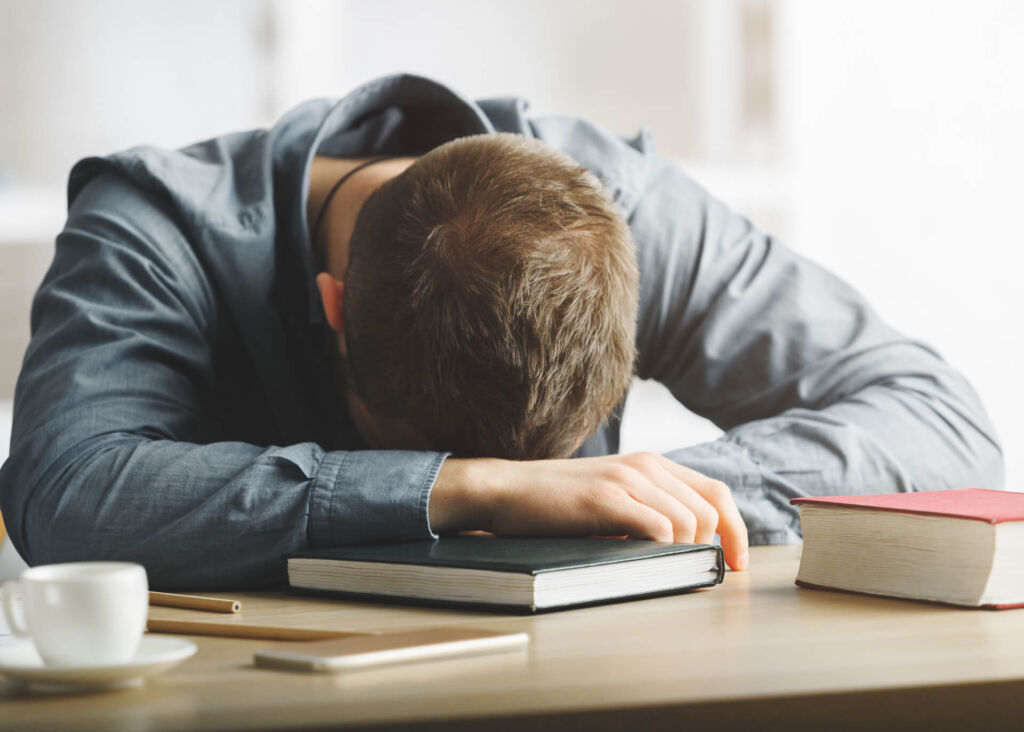
What makes espresso different from regular coffee?
Maybe you are a drip-brewed coffee drinker who wonders what all the hubbub about espresso is about. Your regular cup of coffee helps you stay awake just fine, so does espresso wake you up any better?
Espresso is highly concentrated and packs more caffeine per ounce than regular coffee. Consequently, espresso can keep you awake more effectively than drip coffee.
An 8oz average cup of coffee has roughly 95mg of caffeine per serving. That might make you think it’s more potent than espresso, which has “only” 60-70mg of caffeine per shot. But you must account for the difference in serving size.
That regular cup of coffee has significantly less caffeine at only about 12mg per ounce. This makes a double espresso shot worth one and a half cups of regular coffee in terms of caffeine content. Consuming that much caffeine in a couple of sips jolts you awake much faster than drip-brewed coffee.
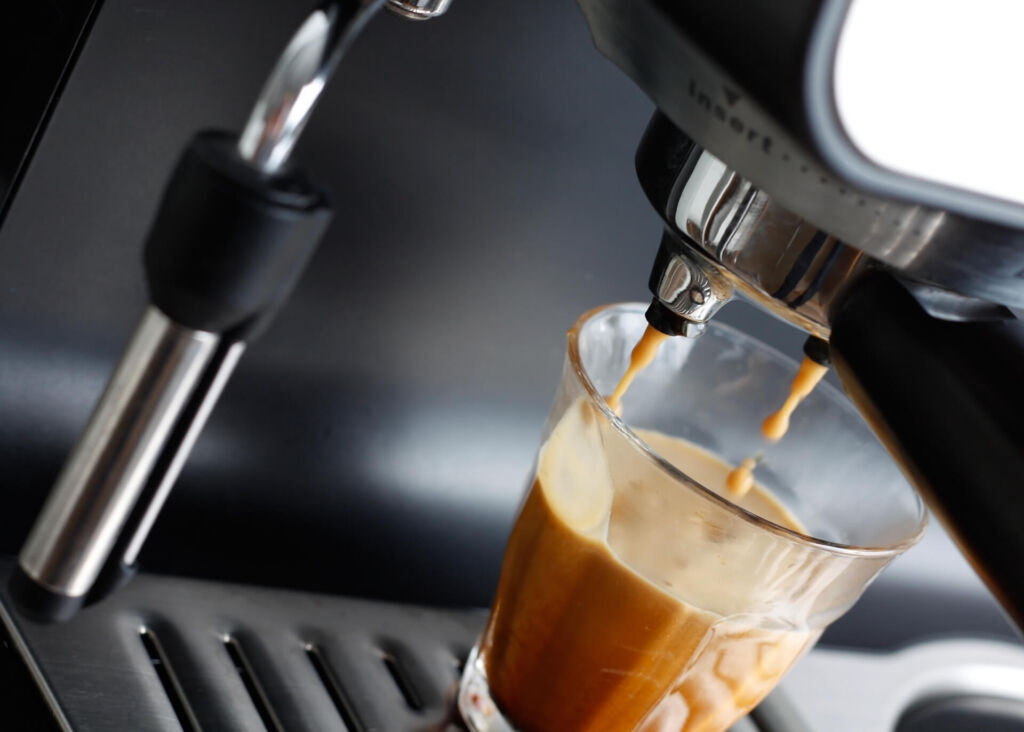
In contrast to the medium grind size used with a regular coffee maker, espresso grounds consist of very fine particles. The grind is so fine that a bladed coffee grinder or a blender likely can’t achieve it.
The fine espresso grind has a larger total surface area than the same amount of drip coffee grounds. This helps caffeine seep out of the dark espresso-roast beans and concentrate into your brew.
The espresso machine forces hot water through the packed coffee at high pressure, extracting caffeine, coffee oils, and other compounds more effectively and making espresso drinks darker in taste than other coffees. The result is a thick espresso with a bold aroma and flavor with visible oil.
The espresso maker is a crucial part of this process. Other types of potent coffee — like French press, AeroPress, Moka pot, or even pour-over espresso — might have a similar flavor but are not espressos and may not keep you awake equally well.
Yet, espresso is not the most caffeinated form of coffee. For example, a ristretto — also made with espresso machines — is a concentrated coffee shot that contains less water and more caffeine.
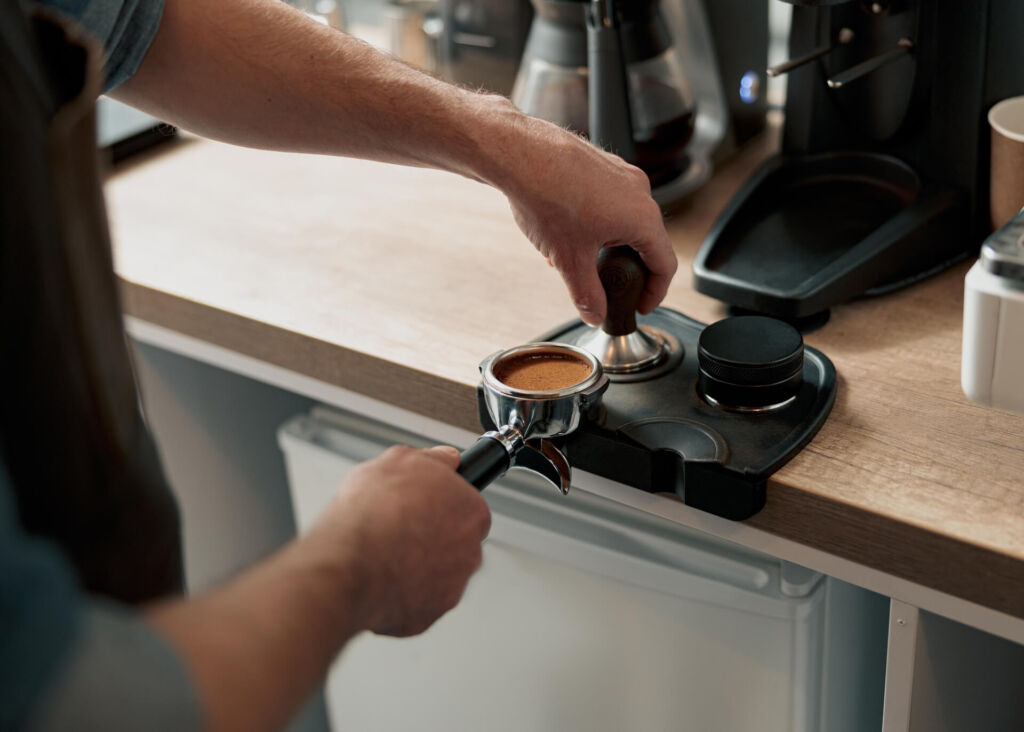
Is espresso good for you?
Espresso can have many beneficial effects on your overall health — as long as you don’t drink too much of it. Overdoing espresso can cause adverse effects on your body with its high amount of caffeine.
You already know that espresso coffee boosts energy and improves concentration. But it may also have some more significant health benefits.
Espresso can improve the performance of your nervous system and decrease the risk of developing dementia. Drinking espressos or black coffee regularly can also reduce the risk of certain types of cancer.
But since it has more caffeine than most other types of coffee, you must be careful about how much espresso you drink. Coffee experts say the recommended daily caffeine intake is less than 400mg.
Keep in mind that caffeine is a mild diuretic. You probably have to use the bathroom soon after drinking espresso.
Espressos are often prepared with dark roasts. This roasting process gives them lower acidity than lighter roasts, comparable to instant coffee, but espresso coffee is still acidic. It can cause heartburn and upset your stomach.
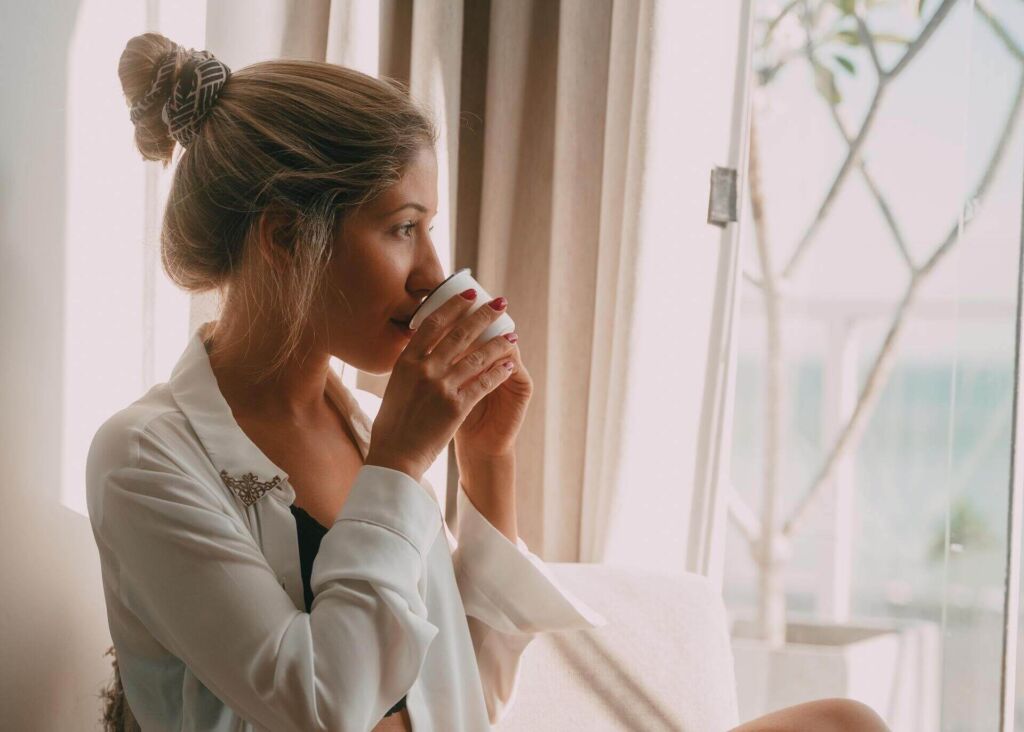
If you keep guzzling espressos, you may notice more negative effects of caffeine, including irritability, anxiousness, insomnia, irregular heart rate, and headaches. Prolonged caffeine overconsumption could weaken your bones and cause fertility problems in women.
Yet, most people will not have to worry about these nightmare scenarios. You can safely have espresso in the morning and afternoon without seeing adverse effects. But if you suffer from the problems I mentioned, it may be smart to stick to low-caffeine coffee or a cup of tea.
So, does espresso wake you up in the morning and help you concentrate? Yes, it does!
Espresso has the most caffeine per ounce out of nearly all coffee drinks. Whether you buy it at Starbucks or brew it yourself with a home espresso maker, it is the best way to jolt yourself awake before a trying day.
But you shouldn’t have too much of stimulants like caffeine. Just remember to exercise moderation, and you can start your mornings with a delicious, energizing cup of espresso.
